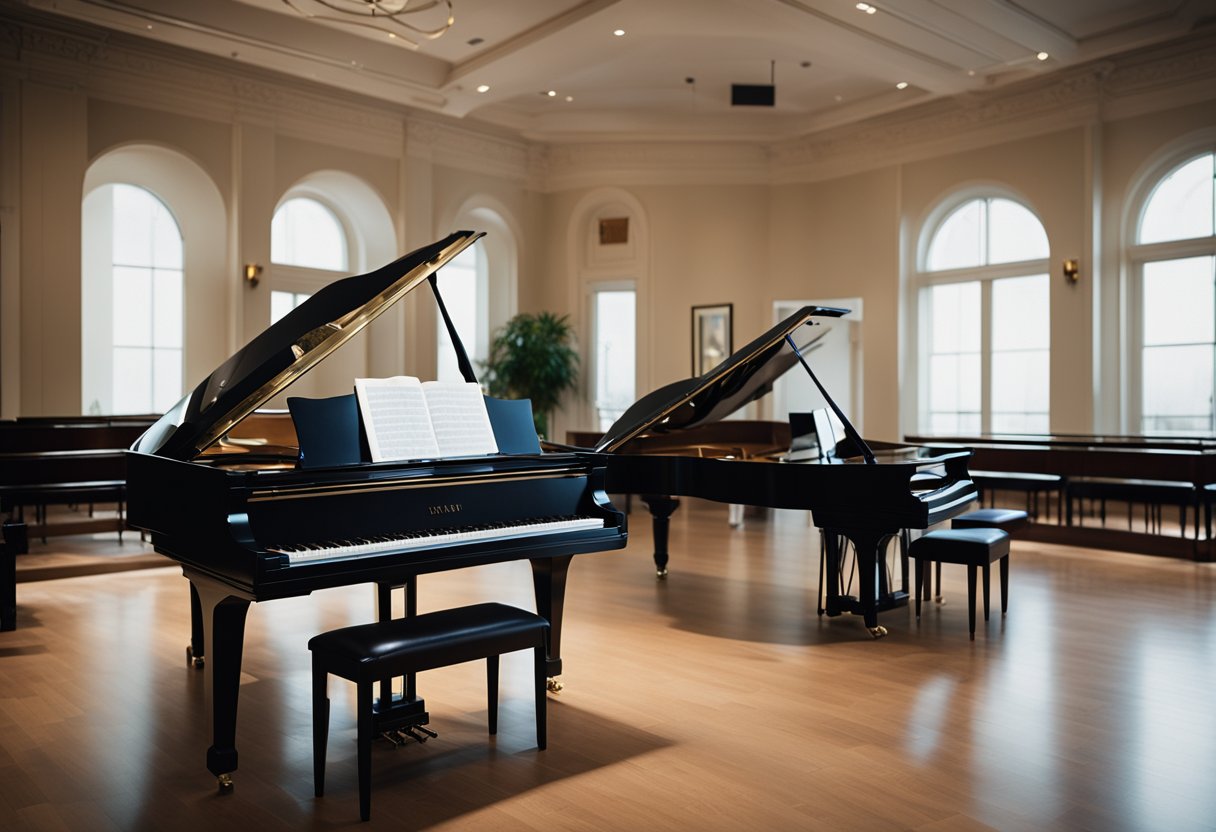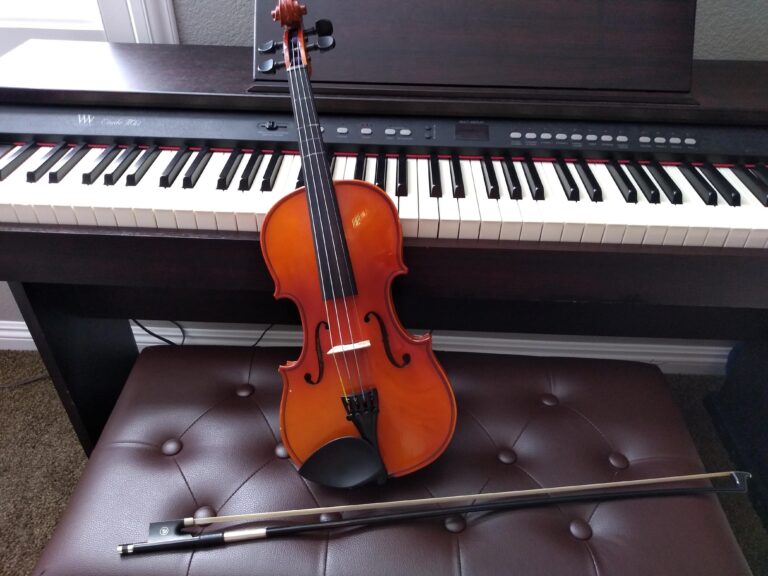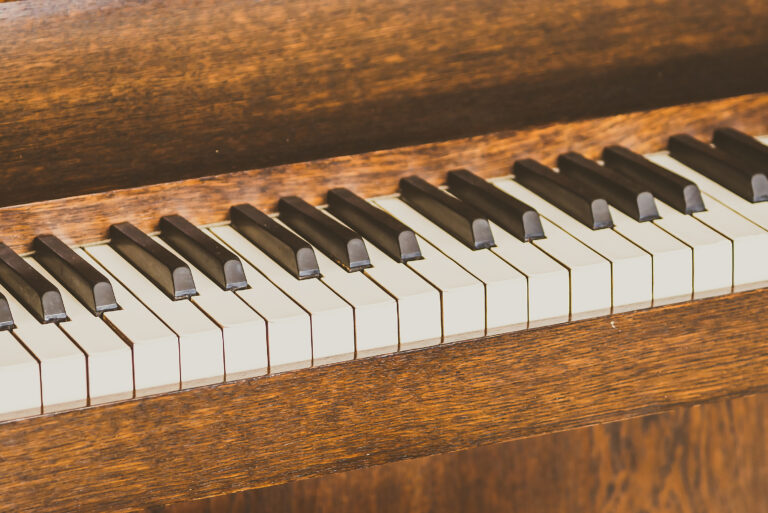The Keys to Success: Debating the Necessity of Piano Exams
Are piano exams necessary? As a piano student, you may have asked yourself this question at some point. Piano exams are a traditional method of assessing a student’s progress and skill level. However, some argue that they are not necessary and can even be detrimental to a student’s musical development. In this article, we will explore both sides of the debate and help you decide whether piano exams are right for you.

On one hand, piano exams provide a clear structure and goal for students to work towards. They often require students to learn a specific set of pieces and technical exercises, which can help them develop a well-rounded repertoire and improve their technical skills. Additionally, exams can provide a sense of accomplishment and recognition for the hard work that students put in. However, others argue that exams can be limiting and discourage creativity. Students may become too focused on achieving a certain grade or passing an exam, rather than exploring their musical interests and abilities.
Ultimately, the decision to take piano exams is a personal one and depends on your individual goals and preferences. In the following sections, we will delve deeper into the pros and cons of piano exams and provide you with the information you need to make an informed decision.
Purpose of Piano Exams

Skill Assessment
Piano exams provide an opportunity for you to assess your skill level. The exams are designed to test your proficiency in various aspects of piano playing, such as sight-reading, technical skills, and interpretation. By taking these exams, you can get a clear idea of your strengths and weaknesses, which can help you improve your playing.
Goal Setting
Another purpose of piano exams is to set goals for your progress. The exams are structured in a way that allows you to progress through different levels of difficulty. Each level represents a specific set of skills that you need to master before moving on to the next level. This goal-oriented approach can provide you with a sense of accomplishment and motivate you to continue practising.
Motivation
Piano exams can also be a source of motivation. The exams provide a tangible goal to work towards and can give you a sense of purpose in your practice. Additionally, the feedback you receive from the examiners can help you identify areas where you need to improve, which can be motivating in itself.
Piano exams serve an important purpose in assessing your skills, setting goals, and providing motivation. Whether you are a beginner or an advanced player, taking piano exams can help you improve your playing and achieve your musical goals.
Pros of Piano Exams

Structured Learning Path
When you take piano exams, you follow a structured learning path that helps you progress in your piano-playing skills. The syllabus of the exams covers various aspects of piano playing, including music theory, sight-reading, and aural skills. This structure helps you understand what you need to learn and practice to improve your piano playing.
Recognition and Credentials
Piano exams provide recognition and credentials for your piano-playing skills. When you pass an exam, you receive a certificate that acknowledges your achievement. These certificates are recognized by music schools, universities, and employers, which can help you in your future endeavours. For example, if you want to pursue a music career, having piano exam certificates can help you stand out from other candidates.
Feedback from Professionals
When you take piano exams, you receive feedback from professional examiners who are experienced in piano playing and teaching. This feedback can help you identify your strengths and weaknesses and provide guidance on how to improve your piano playing. The examiners can also give you tips on how to practice efficiently and effectively, which can help you progress faster in your piano playing skills.
Piano exams can be beneficial for those who want to improve their piano playing skills, receive recognition and credentials, and receive feedback from professionals. However, it is important to note that piano exams are not necessary for everyone and that there are other ways to improve your piano playing skills.
Cons of Piano Exams
Stress and Anxiety
One of the major drawbacks of piano exams is the stress and anxiety they can cause. Preparing for an exam can be a nerve-wracking experience, and many students feel pressured to perform well. This can lead to feelings of anxiety, which can negatively impact their performance on exam day. Additionally, the pressure to pass can take away from the joy of playing the piano and make it feel like a chore.
Financial Cost
Another downside of piano exams is the financial cost. Preparing for an exam often requires additional lessons, which can be expensive. In addition, there are fees associated with taking the exam itself. For families on a tight budget, this can be a significant burden and may prevent some students from pursuing their musical interests.
One-Size-Fits-All Approach
Piano exams are often criticized for their one-size-fits-all approach. The exams are designed to assess a student’s ability to play a specific set of pieces and technical exercises, but they do not take into account the individuality of each student’s musical interests and abilities. This can be frustrating for students who feel limited by the exam’s requirements and may discourage them from exploring other areas of music that interest them.
While piano exams can provide a sense of accomplishment and a goal to work towards, they are not without their drawbacks. Students and their families need to weigh the pros and cons before deciding whether or not to pursue exams.
Alternatives to Piano Exams
Self-Directed Learning
One alternative to piano exams is self-directed learning. This approach allows you to set your own goals, choose your repertoire, and work at your own pace. With self-directed learning, you have the freedom to explore different styles of music and to focus on the areas that interest you the most. You can also take advantage of online resources, such as instructional videos and forums, to help guide your learning.
Informal Performance Opportunities
Another alternative to piano exams is to seek out informal performance opportunities. This can include playing for friends and family, participating in open mic nights, or joining a community music group. These opportunities allow you to gain valuable performance experience in a low-pressure environment. Additionally, playing for others can be a great way to build confidence and receive feedback on your playing.
By exploring alternatives to piano exams, you can find a learning approach that suits your needs and goals. Whether you choose self-directed learning or seek out informal performance opportunities, the key is to stay motivated and committed to your musical development.
Conclusion
Balanced Perspective
As you have seen, there are both advantages and disadvantages to taking piano exams. On the one hand, exams provide a clear structure and set of goals to work towards, which can be motivating and rewarding. They also offer a measure of objective evaluation and feedback, which can help you identify areas for improvement and track your progress over time.
On the other hand, exams can also be stressful and time-consuming, and may not always accurately reflect your true abilities or potential as a musician. They can also be expensive, especially if you need to pay for multiple exams or travel to a testing centre.
Ultimately, whether or not you choose to take piano exams will depend on your personal goals, preferences, and circumstances. It is important to weigh the pros and cons carefully and make an informed decision that is right for you.
Personal Decision
If you do decide to take piano exams, there are several steps you can take to maximize your chances of success. These include practising regularly, seeking feedback from a qualified teacher or mentor, and familiarizing yourself with the exam format and requirements.
It is also important to maintain a healthy perspective and avoid placing too much emphasis on exam results. Remember that exams are just one aspect of your musical journey and that there are many other ways to develop your skills and express yourself as a musician.
In the end, the decision to take piano exams is a personal one that should be based on your own goals, values, and priorities. With a balanced perspective and a commitment to ongoing learning and growth, you can achieve success and fulfillment in your musical pursuits.
Frequently Asked Questions
What are the benefits of taking piano exams?
Taking piano exams can provide a structured way to measure your progress and set goals for improvement. It can also give you a sense of accomplishment and recognition for your hard work. Additionally, exams can help you develop skills such as sight-reading, aural awareness, and technical proficiency.
How do piano exams impact a high school student’s music education?
Piano exams can be a valuable addition to a high school student’s music education. They can provide a way to demonstrate proficiency in piano playing and can be used for college applications and scholarship opportunities. Additionally, exams can help students develop discipline and time management skills.
Are there advantages to adults participating in piano examinations?
Yes, there are advantages to adults participating in piano examinations. They can provide a structured way to measure progress and set goals for improvement. Additionally, exams can help adults develop skills such as sight-reading, aural awareness, and technical proficiency.
What is the significance of piano exams within the United States educational system?
Piano exams are not a required component of the United States educational system. However, they can be a valuable addition to a student’s music education and can be used for college applications and scholarship opportunities.
Can you progress in piano without taking formal exams?
Yes, it is possible to progress in piano without taking formal exams. However, exams can provide a structured way to measure progress and set goals for improvement.
How do official piano examinations like ABRSM influence a musician’s credentials?
Official piano examinations like ABRSM can be a valuable addition to a musician’s credentials. They can demonstrate proficiency in piano playing and can be used for college applications and scholarship opportunities. Additionally, exams can help musicians develop discipline and time management skills.






